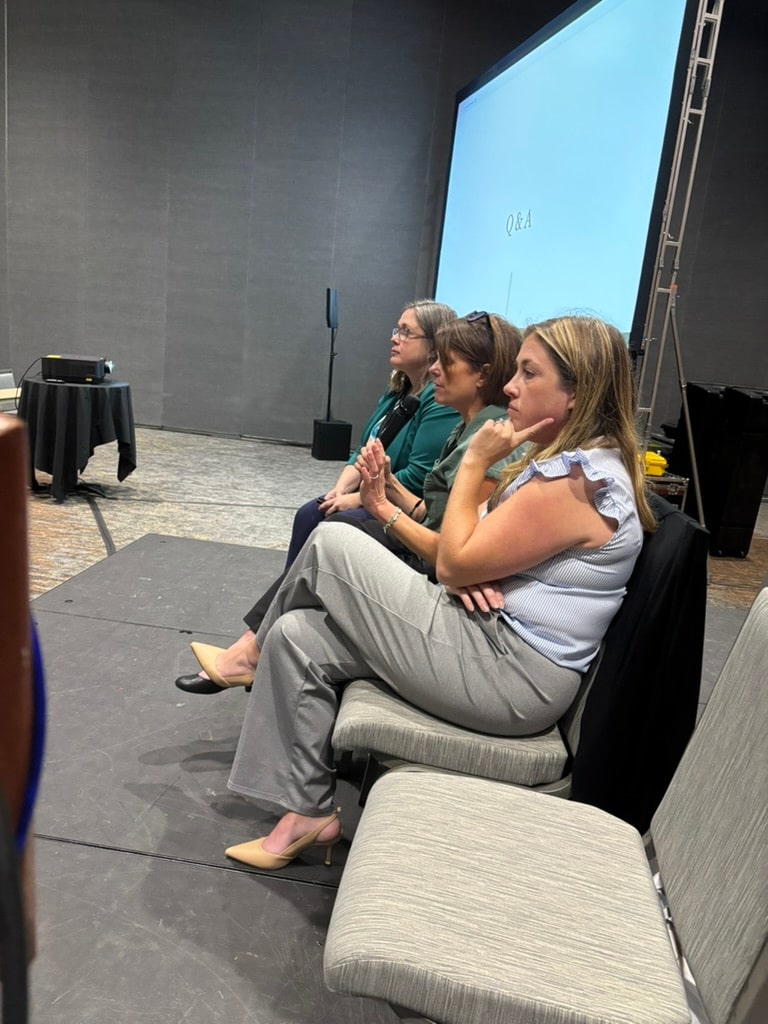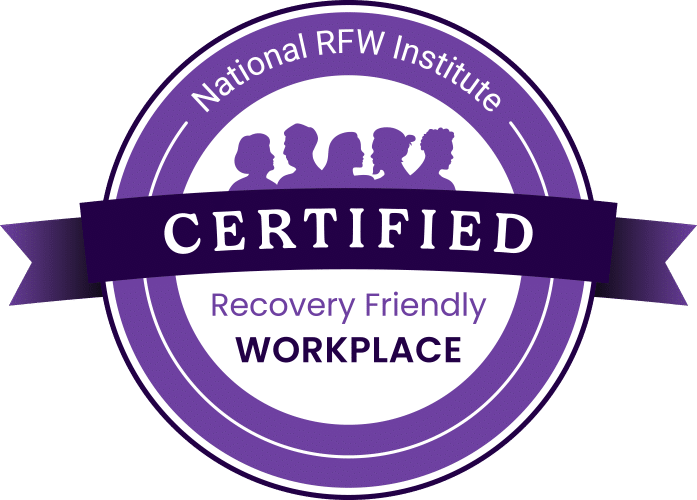This month, members of Eliot Community Human Services’ leadership—Kerry Rivard, Director of Clinical Services; Meaghan James, CBHC Adult Team Manager; and Aaron Katz, Chief Operating Officer—joined Dr. Jill Donelan of Mirah to present at the Collaborative Family Healthcare Association (CFHA) Annual Conference in Raleigh, NC. Their session, Turning Data Into Better Care: Leadership Perspectives on Measurement-Based Care, explored Eliot’s journey in embedding Measurement-Based Care (MBC) across behavioral health settings to improve client outcomes and strengthen clinical culture.
Building a Data-Informed Model of Care
Measurement-Based Care integrates standardized assessments and real-time feedback into the therapeutic process, creating a continuous loop of collect, share, and act. For Eliot, implementing MBC meant aligning leadership, clinical practice, and technology to foster a culture of accountability and shared decision-making.
“Our goal was to create an environment of success for clinicians and clients alike,” said Rivard. “MBC gives us a common language across programs—linking values, measures, and outcomes to truly tailor care.”
The approach has become central to Eliot’s Community Behavioral Health Centers (CBHC) and is expanding throughout programs including Department of Mental Health, Department of Children and Families and Department of Youth Services, and Homelessness Services. Using Mirah, a cutting-edge behavioral health integration and metrics platform, teams across crisis, outpatient, and residential programs track progress, adjust treatment, and ensure the highest standards of care for clients.
Outcomes That Matter
Eliot’s use of MBC has produced measurable improvements across multiple domains. For example:
45% of clients with moderate to severe well-being challenges show significant improvement (WHO-5)
49% of clients with anxiety and 46% with depression experience meaningful symptom reduction (GAD-7, PHQ-9)
75% of clients with suicide risk demonstrate reduced risk levels through the Collaborative Assessment and Management of Suicidality (CAMS) treatment track
These results underscore the power of integrating evidence-based tools into community-based care—enhancing both clinical precision and client empowerment.
National Recognition
Eliot’s leadership in this space has been recognized nationally. The organization was recently highlighted in Bright Spots in Measurement-Informed Mental Health Care by West Health and Mosaic, a report featuring innovators across the country advancing data-informed behavioral health models.
Read the full feature here:
https://westhealthmosaic.com/articles/bright-spots-in-measurement-informed-mental-health-care
As Eliot continues to expand its MBC framework, the message remains clear: when data and compassion work hand in hand, better outcomes follow—for clients, clinicians, and communities alike.


